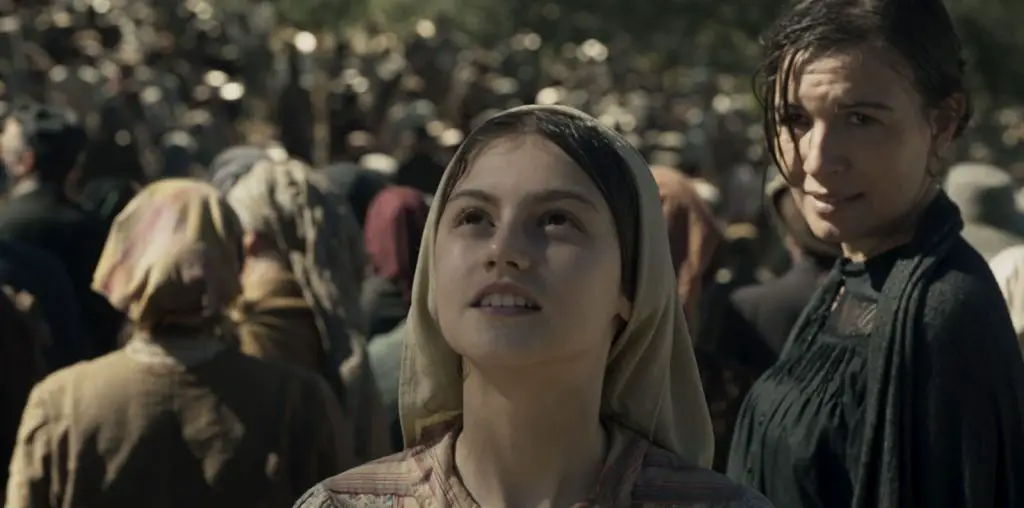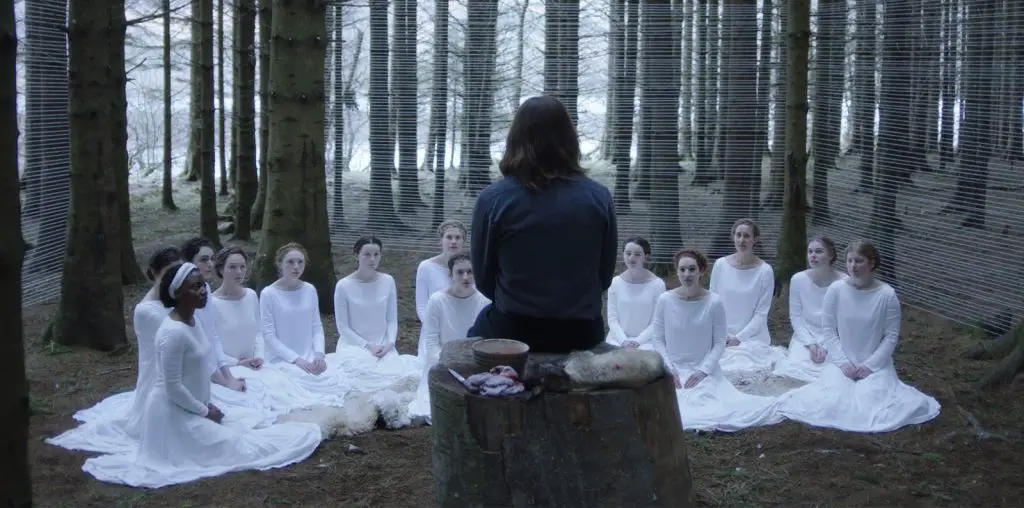
“Do you believe in God?” a psychiatrist asks Mirjam, the young protagonist of Jorunn Myklebust Syversen’s probing Norwegian drama Disco. “I have to,” she replies. Faith forced upon her, Mirjam finds herself at a crossroads, confused about her own beliefs, attempting to confront her inhibitions in a manufactured environment that prohibits this sort of rationalization.
Syversen’s film functions on several levels. It is a subtle-but-sharp indictment of organized religion, a study of parents ignorantly allowing their demons to fundamentally affect their offspring, a searing character study of said offspring, and a glorious introduction of the wildly talented actress Josefine Frida Pettersen. To pull off just one of those feats would be an achievement – kudos to the writer/director for handling it all with aplomb.
Pettersen’s Mirjam is a champion dancer. Outfitted in glitter and buckets of make-up, she poses for photos before running off to the bathroom to throw up. Her mother, Vanja (Kjærsti Odden Skjeldal), traumatized from an abusive relationship with her ex-husband, clings to another, arguably equally abusive one, with the violently devout Per (Nicolai Cleve Broch). Vanja is so deeply immersed in her own emotional cesspool that she fails to recognize the effect her relationships are having on poor Mirjam.
Constantly told to “fill your heart with Jesus,” her room stuffed with trophies that reveal years and years of relentless competition, Mirjam resents Per but has also been conditioned to love God unquestioningly. She listens to sermons before going to sleep. She leads religious text readings in public schools. She even performs Christian EDM (yes, that’s a genre) tunes like “I Was Looking for Jesus” at the local church. She gets reprimanded for dressing inappropriately and watching bloggers online.

“…Mirjam falls during a crucial competition.”
One day, Mirjam falls during a crucial competition. Instead of encouraging her, Per gives her the following bit of advice: “Show them that you’re better than them. That you’re a winner,” before concluding, “You’re beautiful, but you have to make sure to be just as beautiful on the inside.” Emotions peak with a botched suicide attempt, but Syversen keeps things subdued, for the most part, agony simmering under the surface – up until the movie’s bittersweet conclusion when things come full circle in a cult-like religious group.
Disco wisely avoids blatant sermonizing (though a lot of the characters do just that) or sentimental outbursts. Syversen carefully adds layers as the movie progresses, revealing the potential reasons for Mirjam and Vanja’s reverential approach to faith. It’s the little moments that count, adding up to a dismaying and deeply touching portrait of lost identities. I love the moment when Mirjam looks despondently at her younger peers on the dance floor, busy busting moves all around her, raised to compete – she clearly sees herself in them. A single glance from Mirjam at a locker room reveals her loneliness and lack of social skills.
None of this would work without Josefine Frida Pettersen’s fierce commitment to the part. The young woman is a magnetic actor: sophisticated and charismatic, suggesting raging fires underneath the calm exterior. Cinematographer Marius Matzow Gulbrandsen’s camera follows her every micro-expression and gesture, and she lives up to the task. It’s a deeply empathetic, wise-beyond-her-years performance.
Syversen is not the first filmmaker to criticize organized religion – an easy target – yet viewed through the eyes of a hurting teenager, Disco takes on a deeper resonance, portraying how deeply it’s embedded within sponge-like minds that are susceptible to influence. “Faith is confidence in what we hope for” is the sort-of mantra repeated throughout, yet what its characters hope for is the expelling of what they perceive as demons, eloquently portrayed in a gay conversion therapy sequence. Disco is about how toxicity seeps into everything from masculinity to religion to parenting and, yes, even dancing. It’s as beautiful and heartbreaking as watching a dancer pirouette into an abyss.

"…avoids blatant sermonizing...or sentimental outbursts."


